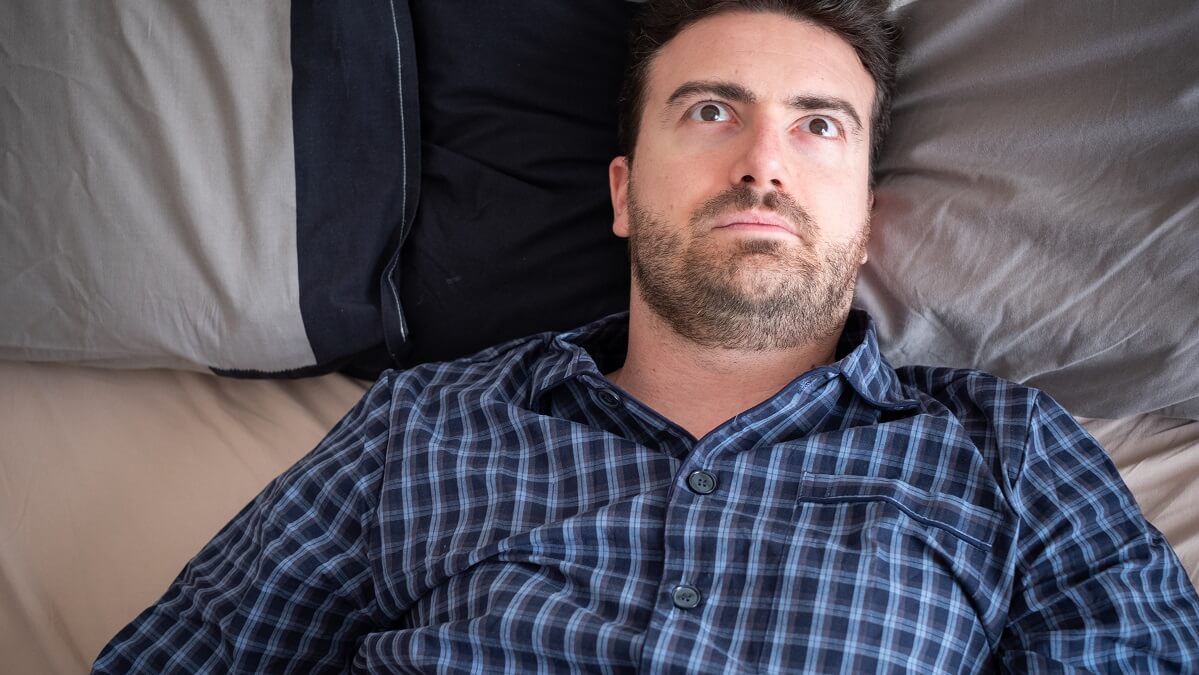Getting five hours sleep or less a night could increase your risk of getting two or more chronic diseases as you get older, new research has found.
But some experts say we should be more worried about the impact of things like smoking, high blood pressure and inactivity.
The study, published today in the journal PLOS Medicine, followed 7,000 men and women, employed by the British civil service, over 30 years, tracking the amount of sleep they had and the chronic diseases they developed.
Their sleep was measured six times between 1985 and 2016 and correlated with the chronic illnesses they developed at three particular ages.
“Short sleep duration at age 50, 60 or 70 was associated with a 30 to 40 per cent increase of multimorbidity [developing more than one chronic illness],” said lead author Séverine Sabia, an epidemiologist at the Université Paris Cité, Inserm and the University College London.
People in the study were regarded as having a “short sleep duration” if they slept five hours or less, and their risk of disease was compared to those who had the recommended seven hours.
While some evidence has linked sleep duration to individual chronic illnesses – which include heart disease, cancer, arthritis, depression and diabetes – Dr Sabia said this was the first prospective study to look at the link with multiple chronic diseases.
“In real life when people get older, they have several diseases,” she said, adding that over half of older adults are estimated to have at least two chronic diseases in high-income countries.
Unsurprisingly, shorter sleep was also linked to a greater risk of death, mainly because of the increased risk of chronic disease.
The researchers also found disturbed sleep was linked to multimorbidity.
And Dr Sabia and colleagues also looked at the impact of sleeping longer than recommended.
While they found sleeping longer than nine hours appeared to be linked to more chronic disease, this trend was puzzlingly only observed in the 60- and 70-year-old group.
When they looked closer, they found the people who were sleeping longer were already unwell, and their disease could well have been the cause of their extended sleeping, rather than the other way around.
“It could be due to medication, or fatigue related to the disease,” Dr Sabia said.
Loading YouTube content
‘Chicken and egg’ dilemma
Gemma Paech, a sleep researcher at the University of Newcastle who was not involved in the study, said the findings supported previous research that linked sleep duration and sleep quality with illness.
Although, she added, there was always the problem of the “chicken and egg dilemma” in sleep studies.
“We know when people don’t get enough sleep that can lead to health problems, but then a lot of the time when people have health problems, they also have poor sleep,” Dr Paech said.
“I don’t think you can unequivocally define the cause.”
Read more
She said the researchers used “self reports” from people about their sleep duration, which can be unreliable, but the large size of the study would have helped compensate for this.
“When you get large sample sizes, your subjective reports balance out. Some people overestimate and some will underestimate,” Dr Paech said.
Maximilian de Courten, of the Mitchell Institute for Education and Health Policy at Victoria University, agreed the new findings about the impact of short sleep duration are robust.
But he said the absolute risk of multiple chronic illnesses in short sleepers was low – affecting fewer than one in 10 of them.
“I’d be more worried about smoking, blood pressure and inactivity,” Professor de Courten said.
Other public health experts, like Rob Moodie, Professor of Public Health at the Melbourne School of Population and Global Health, said the findings reinforced research linking sleep duration with diabetes, obesity, heart disease and depression.
He believed there should be greater awareness of the importance of sleep, and sleep should be included in studies on the global burden of disease.
“We don’t talk about it enough,” Professor Moodie said.
Still plenty we don’t know
Professor de Courten said more research was required to better understand the role of different sleep patterns, as well as duration, in good health.
“It’s still an emerging area,” he said.
In fact, researchers are starting to question the long-held assumption that people must always get their seven hours of sleep in one hit, Dr Paech said.
There are some theories that splitting it into smaller chunks across a 24-hour period may work for some people, she added.
Dr Paech said we should try to sleep when we’re sleepy and whatever we do, don’t worry, because that definitely won’t help.
“The more you think and worry about how much sleep you are or aren’t getting, the more elusive sleep becomes.
 © 2020 Australian Broadcasting Corporation. All rights reserved.
© 2020 Australian Broadcasting Corporation. All rights reserved.
ABC Content Disclaimer

